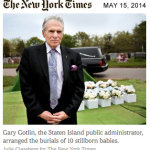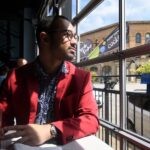
Therapy. Something to think about…
Why Do We Struggle So Much to Heal Ourselves?
By Ben Fishel
Last week I picked up the phone to talk to someone who was interested in getting therapy. The conversation went smoothly, until they asked the dreaded question.
It’s a question that is surprisingly common when people come to therapy for the first time.
The question that all therapists have to answer, yet would prefer not to (actually, I’ve never asked anyone else about this…I’m just being dramatic.)
“What can you do that can help me be happy again?”
It’s a tricky question for therapists to answer. And to understand why, I need to tell you a bit about ancient spiritual pyramids…..bear with me.
I recently was watching a documentary about ancient civilizations. In one of the episodes, they were exploring pyramids that had been constructed all over the world from Mexico to Egypt to Indonesia and Cambodia. The one thing that all these pyramids had in common was that they were built in order to foster a relationship with the divine, the universe, god, the transcendent – however, their culture experienced it.
I couldn’t help but compare their megastructures with our megastructures, built in the name of nation-states or multibillion-dollar organisations.
And I fell into a mental-trap that is all too common for me – I began to idealise the past. To be fair, it’s deceptively easy to think back to “the good old days” when our world, on many fronts, doesn’t appear to be heading in a positive direction.
And while I want to avoid caricaturing cultures that are almost impossible to truly understand through a modern lens, it’s fair to say that some ancient cultures did seem some things right. Importantly, they had structures in place that facilitated what we now know to be factors that contribute to self-healing:
- A sense of connection and community
- A feeling of safety
- The permission to express your gut feelings
- Playfulness
- Consistent and functional physical activity
- A spirituality that is embedded in all aspects of life
Which brings me back to the question I was asked on the phone.
Because the reality is, that after 100 years of psychotherapy, we still find it really tough to determine exactly what will help an individual heal and when.
The effectiveness of treatments varies so much that it’s been somewhat of a challenge to fit psychological services into existing medical systems. A lot of what ends up helping people heal actually doesn’t have great evidence behind it. “Fringe” modalities and theories like neurolinguistic programming, transpersonal psychology, homeopathy, kinesiology, reiki, forms of body work, have all ended up widely popular despite having little support from the mainstream scientific communities.
But why is this the case?
Well, partly because psychological healing is an emergent phenomenon. That mean that because the human being is such a complex system, and healing is such a complex process, we can’t turn it on and off like a tap.
Healing is something that arises when the right conditions are met. In fact, the very attempt of focusing too much on trying to heal can get in the way of the process. When we actively try too hard to heal, we may put extra stress on ourselves and reinforce the unconscious belief that we are broken need fixing.
The Austrian Psychiatrist and holocaust survivor said something very similar about happiness and success:
“Success, like happiness, cannot be pursued; it must ensure, and it only does so as the unintended side-effect of one’s personal dedication to a cause greater than oneself.”
Here the ‘conditions’ that allow happiness to emerge are the commitment to a cause greater than oneself.
So did the Economist John Kay:
“If you want to go in one direction, the best route may involve going in the other. Paradoxical as it sounds, goals are more likely to be achieved when pursued indirectly. So the most profitable companies are not the most profit oriented, and the happiest people are not those who make happiness their main aim.”
By taking all the attention off the end goal (e.g. happiness), we can put more attention, energy and focus on the conditions that can lead us to happiness (exercise, healthy relationships, spirituality).
So, the advice I’d really like to give is this.
If you want your life to improve, focus on creating conditions in your life for healing to occur naturally. Don’t look at yourself as a broken vase that needs gluing back together. You’re more like a plant that needs to find the balance of water, sunlight and nutrients in the soil. When you find that balance, the idea of being fixed or broken or in need of healing won’t be something you feel the need to fixate over.






























